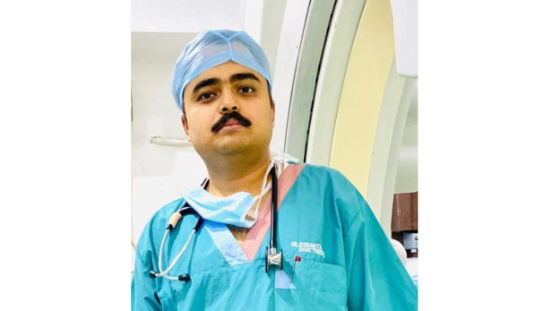- Home
- Speciality specific Q&A
- Cardiology
- Heart Disease
I recently got a TMT and got the results which have left me a bit confused and concerned. The report mentions that my resting ECG is normal, and my functional capacity and heart rate response during exercise are both listed as 'appropriate'. My blood pressure response seemed to be okay too, as it says 'normal resting BP' and 'appropriate response'. I didnt experience any chest pain or arrhythmia, and there were no ST changes. However, the overall impression is marked as a 'normal stress test' but concludes with 'positive for reversible ischemia'. Should I be worried about this reversible ischemia part? What does it mean, and what should my next steps be?
I recently got a TMT and got the results which have left me a bit confused and concerned. The report mentions that my resting ECG is normal, and my functional capacity and heart rate response during exercise are both listed as 'appropriate'. My blood pressure response seemed to be okay too, as it says 'normal resting BP' and 'appropriate response'. I didnt experience any chest pain or arrhythmia, and there were no ST changes. However, the overall impression is marked as a 'normal stress test' but concludes with 'positive for reversible ischemia'. Should I be worried about this reversible ischemia part? What does it mean, and what should my next steps be?
I recently got a TMT and got the results which have left me a bit confused and concerned. The report mentions that my resting ECG is normal, and my functional capacity and heart rate response during exercise are both listed as 'appropriate'. My blood pressure response seemed to be okay too, as it says 'normal resting BP' and 'appropriate response'. I didnt experience any chest pain or arrhythmia, and there were no ST changes. However, the overall impression is marked as a 'normal stress test' but concludes with 'positive for reversible ischemia'. Should I be worried about this reversible ischemia part? What does it mean, and what should my next steps be?
Based on the findings of your TMT (Treadmill Stress Test), it appears that your overall impression is normal, but the conclusion mentions a positive result for reversible ischemia. To treat reversible ischemia, you can consider taking antiplatelet medications like Aspirin 75mg once daily, along with a statin like Atorvastatin 20mg once daily to lower cholesterol levels and reduce the risk of further ischemic events. Additionally, a medication like Metoprolol 25mg twice daily can be prescribed to help manage any underlying cardiovascular conditions. It is important to follow up with your healthcare provider for further evaluation and management.




